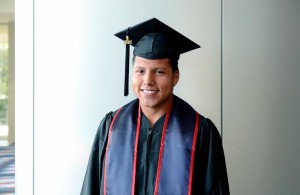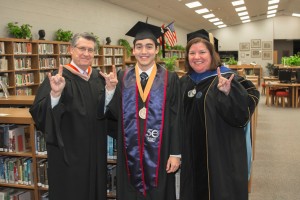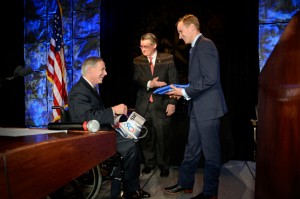Washington, D.C. – New data and analysis of two- and four-year schools released by the Brookings Metropolitan Policy Program provides fresh insight into how well colleges prepare students for high-paying careers.
According to the report, Texas State Technical College ranks seventh in the nation for two-year colleges with the highest value-added with respect to mid-career earnings. The findings show that TSTC graduates are predicted to earn $55,527 annually at mid-career, but the actual earnings are $65,000, which is a value add to the alumni economic outcomes of 16%. To put that into perspective, the average value add of all two-year or lower colleges is -2%.
TSTC was the first college system in the nation to adopt the Value-Added Funding Model. The model, which links state funding directly to graduate earnings, took effect in 2014. “Since TSTC’s state funding is set by our graduates salaries, our entire operation is focused on preparing our students for a high-value career, ” explained TSTC Chancellor Michael L. Reeser. “So, we’re very gratified, but not shocked, to find that TSTC is ranked in the nation’s top-10 colleges whose graduates beat salary expectations,” said Reeser.
The report, “Beyond College Rankings: A Value-Added Approach to Assessing Two and Four-Year Schools,” by Brookings Fellow Jonathan Rothwell and Senior Research Assistant Siddharth Kulkarni, fills a large information gap in higher education of relevance to state education officials, college administrators, and workforce development leaders. It also offers a new tool to help prospective college students think about where to apply and where to attend.
The report is the first to develop measures of “value added” for a broad array of two- and four-year colleges. To do so, it analyzes data on economic outcomes for graduates of these institutions, adjusting them for the characteristics of their students at the time they are admitted, and other factors. The resulting measures capture the contributions that the colleges themselves make to their graduates’ eventual economic success.
Using a blend of government and private data (from LinkedIn and Payscale), the report’s analysis shows:
* A college’s mix of majors and the skills it provides students are highly predictive of economic outcomes for its graduates. Colleges where many students pursue degrees in fields like engineering, healthcare, computer science, and business see higher earnings among their alumni.
* Colleges can boost economic outcomes for students by encouraging higher completion rates and offering generous financial aid.
Compared to popular college rankings, the value-added method focuses on how well colleges contribute to student economic success, rather than simply their ability to attract top students. The new Brookings value-added database provides:
* Value-added scores on at least one economic outcome for as many as 4,400 postsecondary institutions, compared to the 600 or fewer ranked by non-academic publications.
* At least two measures of college quality for over 7,000 colleges, allowing prospective students to readily compare four- and two-year colleges on the factors predictive of success.
* More accurate predictors of college performance relative to popular non-academic rankings.
While imperfect, these value-added measures improve on conventional rankings and fill a demand for greater transparency and accountability in higher education. This report identifies those factors that colleges can influence to improve alumni economic outcomes. It also helps close the information gap for the huge number of community colleges and non-selective colleges that conventional rankings fail to acknowledge.
“College is a major investment for individuals and the taxpayers who subsidize it,” said Rothwell. “So, the public has a huge stake in promoting quality. No ratings system can capture everything about a college that matters, but these data can shed some light on how colleges compare in their contributions to student success and, hopefully, spark further research with even better data.”
The Metropolitan Policy Program at Brookings provides decision-makers with cutting-edge research and policy ideas for improving the health and prosperity of metropolitan areas. To learn more, please visit: www.brookings.edu/metro.



